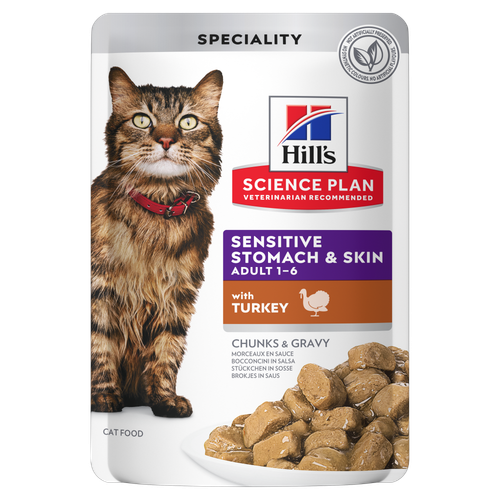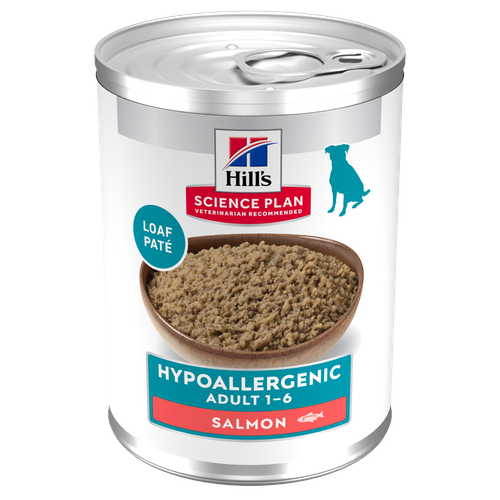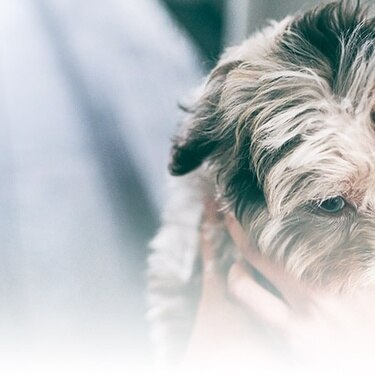
-
Find the right food for your petTake this quiz to see which food may be the best for your furry friend.Find the right food for your petTake this quiz to see which food may be the best for your furry friend.Featured products
 Puppy Food
Puppy FoodHill's Science Plan Puppy Multipack Wet Dog Food with Chicken & Beef are complete premium pet foods for growing puppies from weaning until 1 year old and for pregnant and nursing dogs. Your puppy will love these deliciously smooth and savoury minced loaves, formulated for balanced nutrition and overall health.
Shop Now Mature Adult Dog Food
Mature Adult Dog FoodHill's Science Plan Mature Adult Multipack Wet Dog Food with Chicken & Beef are complete premium pet foods for mature adult dogs from 7 years. Your dog will love these deliciously smooth and savoury minced loaves, formulated to deliver the appropriate amount of energy to support the needs of adult dogs.
Shop Now Adult Wet Dog Food with Beef
Adult Wet Dog Food with BeefHill's Science Plan Adult Multipack Wet Dog Food with Chicken, Beef & Turkey are complete premium pet foods for adult dogs from 1 year. Your dog will love these deliciously smooth and savoury minced loaves, formulated for balanced nutrition and overall health.
Shop NowFeatured products Hairball & Perfect Coat Adult Dry Cat Food with Chicken
Hairball & Perfect Coat Adult Dry Cat Food with ChickenHill's Science Plan Hairball & Perfect Coat Adult Cat Food with Chicken is formulated to effectively help avoid hairball formation in adult cats while promoting a beautiful coat. Thanks to its mix of essential omega-6 fatty acids, this food benefits the cat's skin and fur, keeping them healthy and shiny. Our Advanced Fibre Technology helps reduce hairballs by naturally promoting their passage through the gut. This food is formulated with high-quality protein for a perfectly balanced, great-tasting recipe.
Shop Now Sterilised Adult Cat Food
Sterilised Adult Cat FoodHill's Science Plan Adult Sterilised Cat Dry Food with Salmon is specially formulated with ActivBiome+ Multi-Benefit Technology. It is a precisely balanced nutrition, tailored to meet the needs of sterilised cats, to help keep them lean & healthy.
Shop Now Sensitive Stomach & Skin Adult Cat Food
Sensitive Stomach & Skin Adult Cat FoodHill's Science Plan Sensitive Stomach & Skin Adult Wet Cat Food with Turkey is a complete pet food for adult cats, aged 1–6 years. This highly digestible wet food comes in a pouch and supports healthy digestion, as well as nourishes skin and promotes a thick and lustrous coat.
Shop Now -
Dog
- Dog Tips & Articles
-
Health Category
- Weight
- Food & Environmental Sensitivities
- Urinary
- Digestive
- Joint
- Kidney
-
Life Stage
- Puppy Nutrition
- Adult Nutrition
- Senior Nutrition
Cat- Cat Tips & Articles
-
Health Category
- Weight
- Skin & Food Sensitivities
- Urinary
- Digestive
- Kidney
-
Life Stage
- Kitten Nutrition
- Adult Nutrition
Featured articles The Incredible Science Behind Your Pet's Microbiome
The Incredible Science Behind Your Pet's MicrobiomeLearn what your pet's microbiome is, how it contributes to your pet's gut and overall health, and why nutrition is important in maintaining healthy microbiomes.
Read More The Right Diet For Your Pet
The Right Diet For Your PetIn people, the right diet is very important. If you are eating the wrong way for your metabolism, activity level, age and lifestyle you could end up with health issues.
Read More Show some love with wet foods: a great choice for pets with health issues
Show some love with wet foods: a great choice for pets with health issuesShow some love with wet foods: a great choice for pets with health issues.
Read More -


If you've ever quickly eaten a slice of cheese pizza while your dog longingly eyes your piece of pie, you might have been curious as to whether or not dogs can eat cheese. Maybe you're just curious if cheese is bad for dogs? Since the food can be a nourishing treat for humans, it makes sense to question whether it might also benefit your pet. Here's a breakdown of the pros and cons of sharing this snack with your dog.
The Benefits of Cheese
Cheese is packed with nutrients, including calcium, protein, phosphorus, zinc and vitamins A and B12. However, these are nutritional benefits for humans; what's good for you won't necessarily serve your dog's nutritional needs.
However, this doesn't mean that cheese doesn't have its benefits. One advantage of cheese for dogs is that it can be used as a handy training tool. Also, a tasty morsel of cheese can help mask medicine that you're struggling to get your pup to take.



Tasty Tips
Is Cheese Bad for Dogs?
So, can dogs eat cheese? Or is it always a no-no? While there are some potential benefits of sharing cheese with your dog, the truth is that it may also cause them a host of health issues, including obesity and pancreatitis.
According to the ASPCA, "because pets do not possess significant amounts of lactase (the enzyme that breaks down lactose in milk), milk and other dairy-based products cause them diarrhoea or other digestive upset." The takeaway: Don't give your dog cheese as part of their regular meal plan or as a frequent treat. While the food seems innocent, it could cause them major tummy trouble.
In addition to the issue of lactose, another problem with cheese for dogs is its high fat content. Feeding your dog fatty foods on a regular basis can lead them to gain an unhealthy amount of weight and can even cause obesity, which can in turn, lead to other health problems. According to the PDSA, eating cheese could trigger pancreatitis, especially for breeds that are prone to pancreatitis like schnauzers and Cocker Spaniels. Pancreatitis is a serious condition that often results in stomach upset, diarrhea and a painful belly, but some severe cases can result in death.
What About Cottage Cheese & Other Types?
Not all cheeses are created equal. Low-fat cheeses, such as mozzarella, cottage cheese and soft goat cheese may be healthier options for your dog than those with higher fat content. If shopping for dog-healthy cheeses, also be sure to take a close look at the ingredients. Some cheeses contain herbs and vegetables, such as chives or garlic, both of which can be toxic to dogs.
Before deciding whether to give your dog an occasional cheese snack, consult your veterinarian. They'll be able to help you figure out if it's an appropriate treat and if so, what kind of cheese would be best for them. Always remember, that with any food separate from your dog's normal food — including dog treats — should never account for more than ten percent (10%) of your dog's daily caloric intake. Just like humans, too many calories can lead to weight gain, which can lead to a host of other health conditions.


Erin Ollila believes in the power of words and how a message can inform—and even transform—its intended audience. Her writing can be found all over the internet and in print, and includes interviews, ghostwriting, blog posts, and creative nonfiction. Erin is a geek for SEO and all things social media. She graduated from Fairfield University with an M.F.A. in Creative Writing. Reach out to her on Twitter @ReinventingErin or learn more about her at http://erinollila.com.
Related products

Hill's Science Plan Adult Multipack Wet Dog Food with Chicken, Beef & Turkey are complete premium pet foods for adult dogs from 1 year. Your dog will love these deliciously smooth and savoury minced loaves, formulated for balanced nutrition and overall health.

Hill's Science Plan Puppy Multipack Wet Dog Food with Chicken & Beef are complete premium pet foods for growing puppies from weaning until 1 year old and for pregnant and nursing dogs. Your puppy will love these deliciously smooth and savoury minced loaves, formulated for balanced nutrition and overall health.

Hill's Science Plan Mature Adult Multipack Wet Dog Food with Chicken & Beef are complete premium pet foods for mature adult dogs from 7 years. Your dog will love these deliciously smooth and savoury minced loaves, formulated to deliver the appropriate amount of energy to support the needs of adult dogs.

Hill's Science Plan Hypoallergenic Adult Wet Dog Food with Salmon is a complete premium pet food for all adult dogs from 1 year. This savoury tinned loaf is specially formulated for dogs with delicate skin and stomachs. It features a single novel animal protein source and is grain-free.
Related articles

How, when and what to feed your new puppy is an important decision, learn more about the things to consider for feeding your puppy.

Learn about the potential health risks of a raw diet for dogs and why they aren't the best option for your pup or you.

Many human foods are dangerous to dogs. Read about 5 of the worst toxic food offenders that can kill your dog - and how much it takes to hurt them.

Learn effective tips for feeding a dog that's a picky eater and ensure proper nutrition for a finicky eater. Discover tips for pet parents at Hill's Pet UK.

Put your dog on a diet without them knowing
Our low calorie formula helps you control your dog's weight. It's packed with high-quality protein for building lean muscles, and made with purposeful ingredients for a flavourful, nutritious meal. Clinically proven antioxidants, Vitamin C+E, help promote a healthy immune system.
Put your dog on a diet without them knowing
Our low calorie formula helps you control your dog's weight. It's packed with high-quality protein for building lean muscles, and made with purposeful ingredients for a flavourful, nutritious meal. Clinically proven antioxidants, Vitamin C+E, help promote a healthy immune system.

